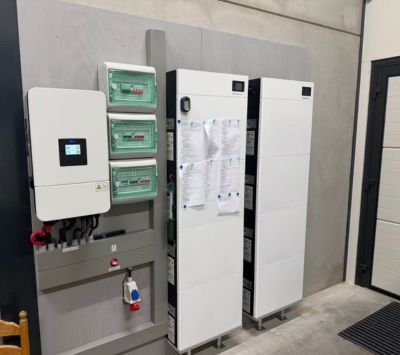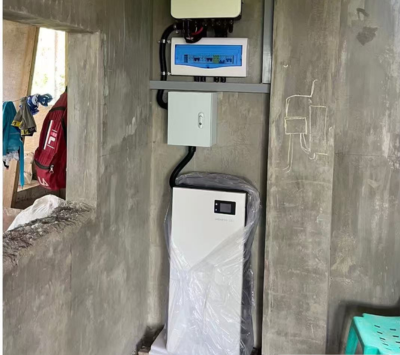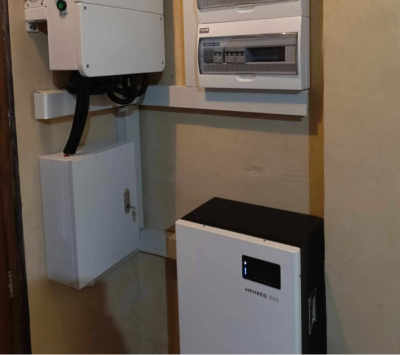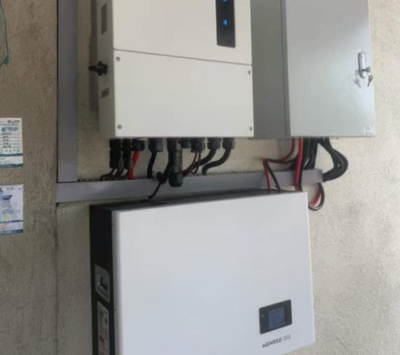LiFePO4 (Lithium Iron Phosphate) batteries stand out in the field of renewable energy storage due to their high efficiency, safety, and longevity. The performance and reliability of these batteries significantly depend on the advanced technology of Battery Management Systems (BMS). BMS plays a crucial role not only in monitoring and protecting the batteries but also in ensuring optimal operation of the battery pack through battery balancing technology.
Core Functions of Battery Management Systems (BMS)
BMS is vital in ensuring the reliability and safety of LiFePO4 batteries. By constantly monitoring the voltage, temperature, and current of each cell, BMS can accurately determine the state of the battery and take appropriate protective actions to prevent overcharging, deep discharging, overcurrent, and overheating. These monitoring and protective features are essential for maintaining battery performance, extending lifespan, and preventing any factors that might cause system failure.
Intelligent Interaction Between BMS and Inverters
Another important function of BMS is its data exchange with inverters. By sending the state information of each battery cell to the inverter, BMS enables the inverter to adjust its operations intelligently to adapt to changes in battery status. This smart interaction ensures the efficient and stable operation of the energy storage system, maximizing the performance and lifespan of the entire system.
The Importance of Battery Balancing Technology
Battery balancing is a key function of BMS, critical for maintaining consistency among the individual cells within a battery pack. Battery balancing adjusts the charge distribution among the cells to ensure each cell reaches the same state of charge, optimizing overall performance. BMS achieves this through passive and active balancing; passive balancing converts excess energy into heat to reduce the charge of higher-voltage cells, whereas active balancing transfers energy from higher-voltage cells to lower-voltage cells for effective redistribution of energy. These balancing measures significantly enhance the overall performance and safety of the battery pack, extending its lifespan.
In summary, Battery Management Systems (BMS) provide an optimal management solution for LiFePO4 batteries through their advanced monitoring, protective, and balancing technologies, ensuring the batteries’ efficiency, safety, and longevity. This advanced management not only enhances the performance of LiFePO4 battery systems but also makes a significant contribution to the development of the renewable energy storage field. As technology continues to advance, BMS will play a key role in improving battery performance and safety, pushing renewable energy technology to higher standards.
Do LiFePO4 batteries require a BMS?
Yes, LiFePO4 (Lithium Iron Phosphate) batteries do require a Battery Management System (BMS) for several important reasons:
Safety: A BMS ensures the battery operates within its safe voltage, current, and temperature ranges, preventing overcharging, deep discharging, and overheating, which can lead to battery damage or even safety hazards.
Cell Balancing: LiFePO4 batteries consist of multiple cells. A BMS balances the charge across these cells, ensuring each cell is equally charged. This is crucial for maintaining the battery’s health, efficiency, and lifespan.
Performance Optimization: By monitoring and adjusting battery operation, a BMS can optimize the performance of a LiFePO4 battery, ensuring it delivers consistent power and lasts as long as possible.
Health Monitoring: A BMS continuously monitors the battery’s health and can provide alerts or take corrective actions if it detects issues that could lead to battery failure.
In summary, while LiFePO4 batteries are known for their safety and stability compared to other lithium battery types, incorporating a BMS is essential for maximizing their performance, safety, and longevity.
How does a LiFePo4 BMS work?
A Battery Management System (BMS) for LiFePO4 (Lithium Iron Phosphate) batteries works by performing several critical functions to manage and protect the battery pack. Here’s an overview of how it operates:
Voltage Monitoring: The BMS constantly checks the voltage of individual cells or groups of cells within the battery pack. This is crucial for identifying overcharge conditions, which can lead to cell damage or failure.
Temperature Monitoring: LiFePO4 batteries have optimal operating temperature ranges. The BMS monitors the temperature of the battery cells to prevent overheating or operation in extreme cold, which can reduce battery efficiency and lifespan.
Current Monitoring: By monitoring the current, the BMS can detect if the battery is experiencing overcharging or excessive discharge rates. This helps in preventing scenarios that can lead to thermal runaway or decreased battery life.
Cell Balancing: Over time, the charge levels of individual battery cells can become uneven. The BMS performs cell balancing by redistributing charge as needed to ensure all cells maintain equal charge levels. This can be achieved through passive (dissipating excess energy as heat) or active (transferring charge from higher charged cells to lower charged ones) balancing methods.
State of Charge (SoC) and State of Health (SoH) Calculation: The BMS calculates the SoC (how much charge is left in the battery) and SoH (the overall condition and capacity of the battery relative to its original state). These metrics are vital for effective energy management and predicting battery lifespan.
Protection: The BMS provides protections against unsafe operating conditions. This includes shutting down or limiting the battery output if it detects conditions like overcharging, over-discharging, short-circuiting, or temperatures outside the safe operating range.
Communication: Advanced BMS units communicate with external devices, providing valuable data on battery performance, SoC, SoH, and alerting to potential issues. This information can be used for further optimizing system performance or for diagnostic purposes.
Overall, the BMS plays a vital role in ensuring the safety, efficiency, and longevity of LiFePO4 batteries by actively monitoring and managing the battery’s operation.






